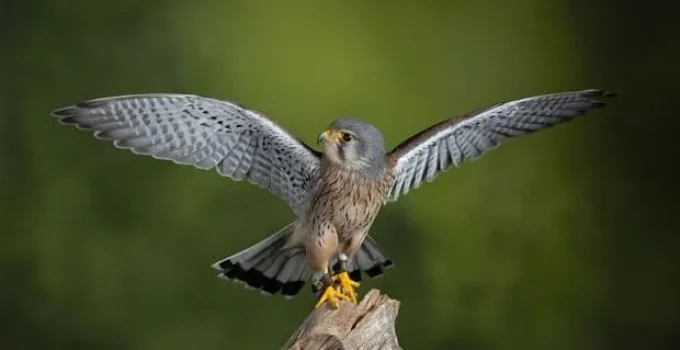How Do Birds Fly Without Falling?
Birds fly without falling because their bodies are perfectly built for flight. They use strong wings, lightweight bones, and special muscles to stay in the sky. Air pressure, wing shape, and constant flapping also help birds generate lift and keep from dropping back to the ground.
🔎 | According to NASA, bird flight is a great example of how physics works in the real world [1].
From tiny hummingbirds to massive eagles, birds have mastered the science of staying airborne—even gliding for hours without using much energy.
Dive Deeper
- What Makes Flight Possible?
- How Do Wings Create Lift?
- Muscles That Power Flight
- Other Features That Help Birds Fly
- Fun Fact Table: Flight Forces in Action
- 🎯 Final Thoughts
- 📚 References
What Makes Flight Possible?
Flying depends on four main forces:
- Lift – The upward force that keeps the bird in the air.
- Thrust – The forward push from wing flapping.
- Drag – Air resistance pushing back.
- Gravity – The downward pull from Earth.
Birds use their wings to balance these forces. When lift and thrust are greater than drag and gravity, the bird rises and flies.
🦅 | Birds change their wing angle and shape during flight to control how high or fast they go.
How Do Wings Create Lift?
A bird’s wing is shaped like an airfoil—curved on top and flatter underneath. When air flows over the wing:
- Air moves faster over the top.
- Air moves slower under the wing.
This creates higher pressure underneath and lower pressure above, pushing the bird upward. This is the Bernoulli principle in action.
✈️ | This same principle is used in airplane wings, which were inspired by birds.
Muscles That Power Flight
Birds have powerful flight muscles attached to their breastbone, especially:
- Pectoral muscles – These power the downstroke, which provides lift and thrust.
- Supracoracoideus muscles – These pull the wings back up during the upstroke.
In fact, flight muscles make up about 25–35% of a bird’s total body weight!
🏋️ | Hummingbirds flap their wings up to 80 times per second using these powerful muscles [2].
Other Features That Help Birds Fly
Birds are full of features that help them stay in the air:
- Hollow bones – Make their bodies lighter.
- Feathers – Provide lift and reduce drag; wing feathers (called primaries) are especially important.
- Tail – Acts like a rudder, helping with balance and direction.
- Strong heart and lungs – Keep oxygen flowing to muscles during flight.
- Streamlined body – Reduces air resistance so they can glide and dive smoothly.
🚀 | Some birds, like albatrosses, can glide for hours by using wind currents, barely flapping at all!
Fun Fact Table: Flight Forces in Action
| Flight Feature | What It Does | Bird Example |
|---|---|---|
| Wing shape (airfoil) | Creates lift | All flying birds |
| Pectoral muscles | Flap wings down | Hawk, sparrow |
| Hollow bones | Reduce weight | All birds |
| Feathers | Help lift and control air flow | Falcon, goose |
| Tail | Steers and balances | Swallow, kestrel |
| Wing angle control | Increases or decreases lift | Owl (silent flier) |
🎯 Final Thoughts
Birds fly without falling thanks to the perfect mix of biology and physics. Their wings and feathers catch the air just right. Their muscles and bones give them the power and lightness to stay up. And their instincts guide them through the skies with ease.
Flight might look effortless, but behind every soaring bird is a smart design that has evolved over millions of years. So the next time you watch a bird glide overhead, think of all the forces at work keeping it up, balanced, and free in the sky.
📚 References
- NASA Glenn Research Center. (2021). The Four Forces of Flight. https://www.nasa.gov/audience/forstudents/5-8/features/nasa-knows/what-are-the-four-forces-of-flight-58.html
- National Audubon Society. (2020). How Hummingbirds Hover. https://www.audubon.org/news/how-hummingbirds-hover
- Smithsonian Institution. (2019). Avian Flight Anatomy. https://naturalhistory.si.edu
- Cornell Lab of Ornithology. (2022). How Birds Fly. https://www.allaboutbirds.org/news/how-do-birds-fly/
